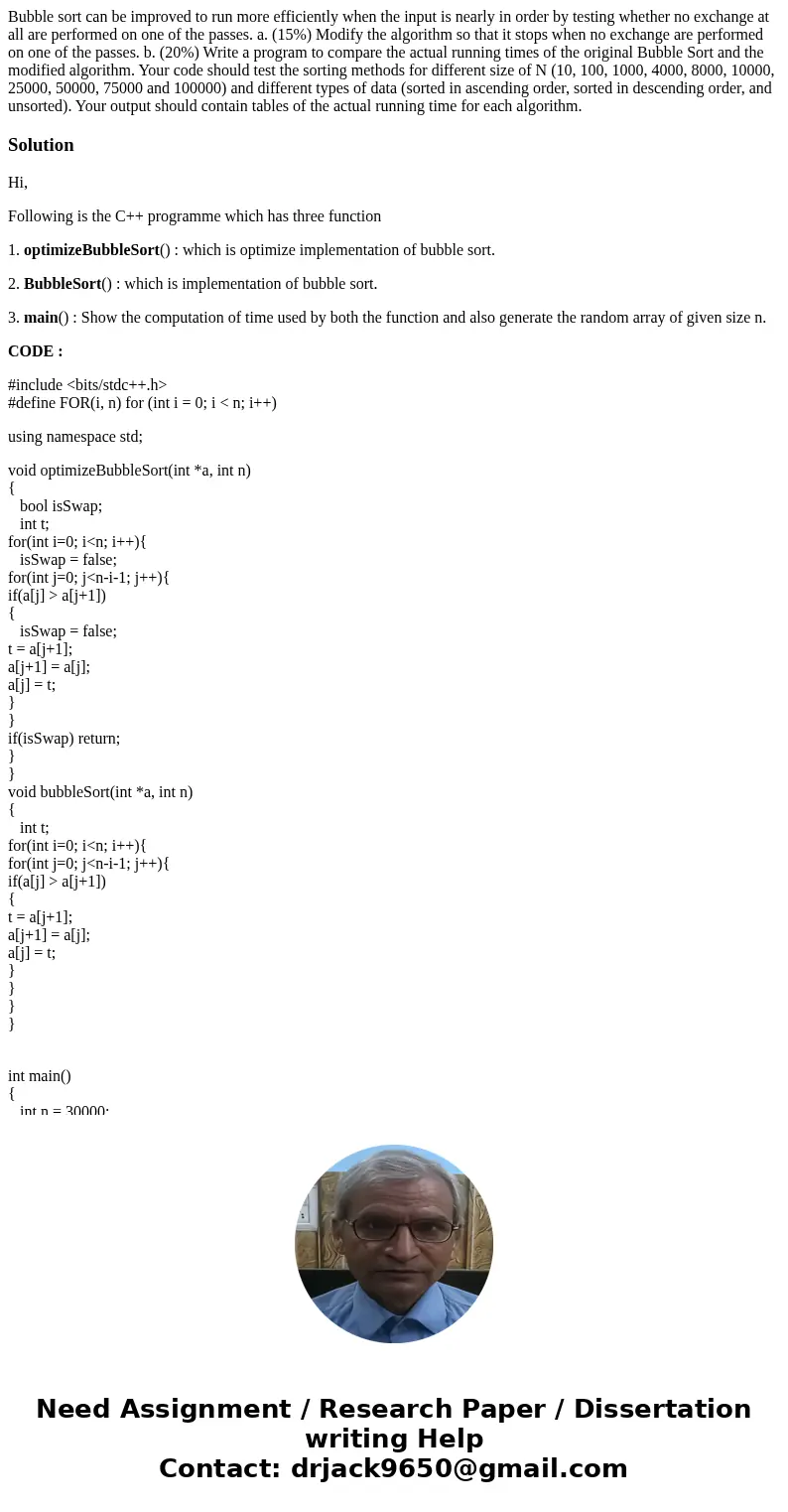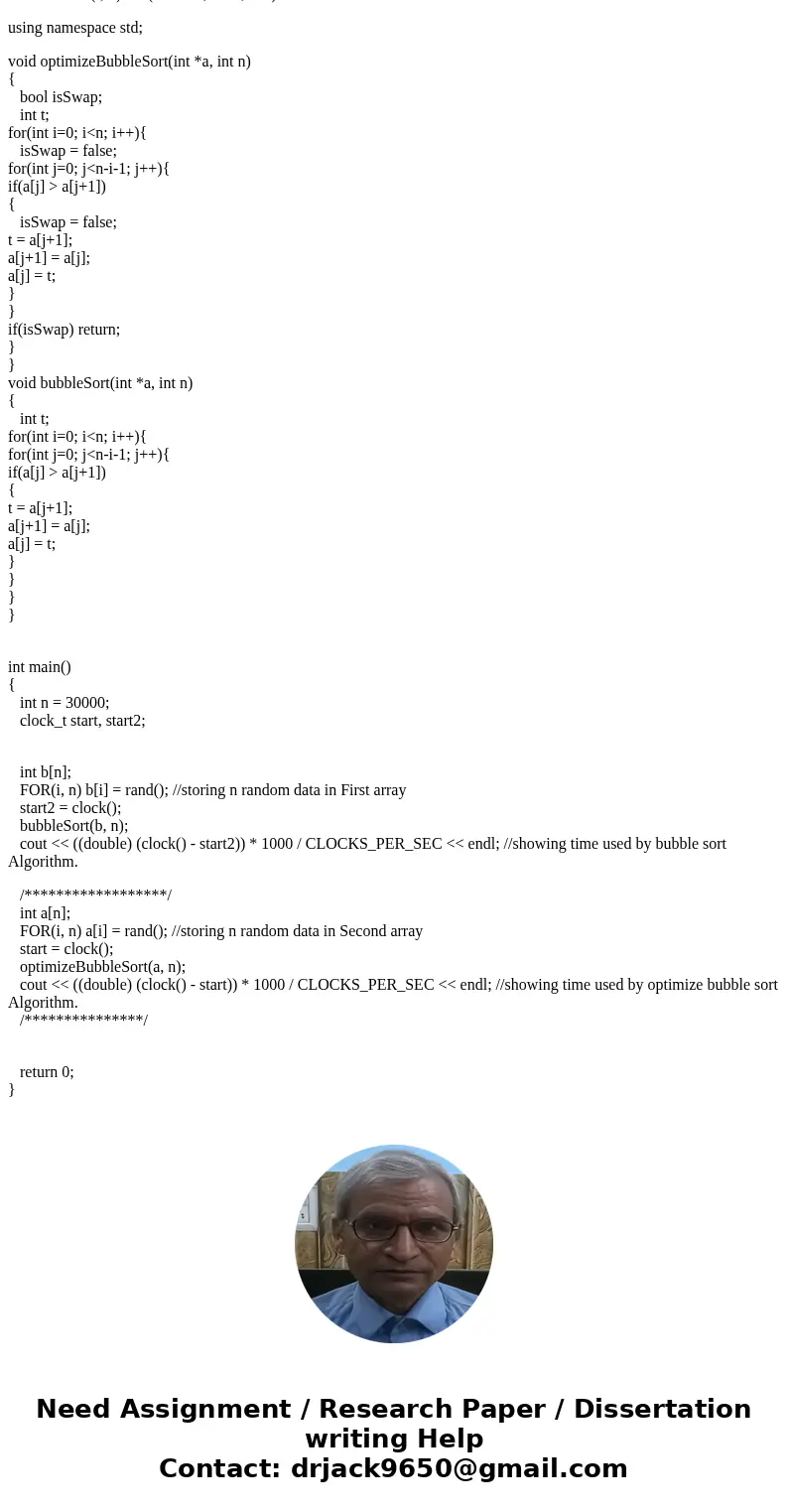Bubble sort can be improved to run more efficiently when the
Solution
Hi,
Following is the C++ programme which has three function
1. optimizeBubbleSort() : which is optimize implementation of bubble sort.
2. BubbleSort() : which is implementation of bubble sort.
3. main() : Show the computation of time used by both the function and also generate the random array of given size n.
CODE :
#include <bits/stdc++.h>
#define FOR(i, n) for (int i = 0; i < n; i++)
using namespace std;
void optimizeBubbleSort(int *a, int n)
{
bool isSwap;
int t;
for(int i=0; i<n; i++){
isSwap = false;
for(int j=0; j<n-i-1; j++){
if(a[j] > a[j+1])
{
isSwap = false;
t = a[j+1];
a[j+1] = a[j];
a[j] = t;
}
}
if(isSwap) return;
}
}
void bubbleSort(int *a, int n)
{
int t;
for(int i=0; i<n; i++){
for(int j=0; j<n-i-1; j++){
if(a[j] > a[j+1])
{
t = a[j+1];
a[j+1] = a[j];
a[j] = t;
}
}
}
}
int main()
{
int n = 30000;
clock_t start, start2;
int b[n];
FOR(i, n) b[i] = rand(); //storing n random data in First array
start2 = clock();
bubbleSort(b, n);
cout << ((double) (clock() - start2)) * 1000 / CLOCKS_PER_SEC << endl; //showing time used by bubble sort Algorithm.
/******************/
int a[n];
FOR(i, n) a[i] = rand(); //storing n random data in Second array
start = clock();
optimizeBubbleSort(a, n);
cout << ((double) (clock() - start)) * 1000 / CLOCKS_PER_SEC << endl; //showing time used by optimize bubble sort Algorithm.
/***************/
return 0;
}


 Homework Sourse
Homework Sourse